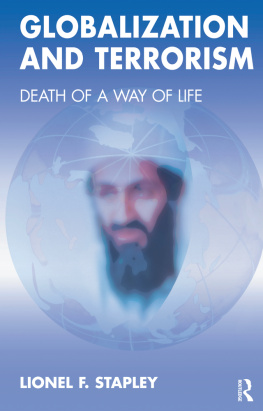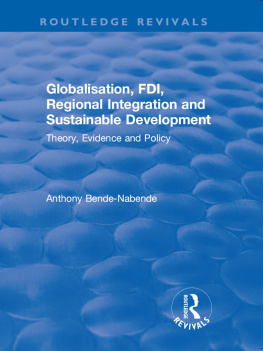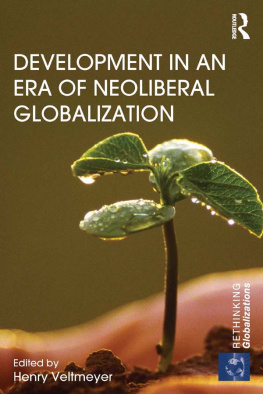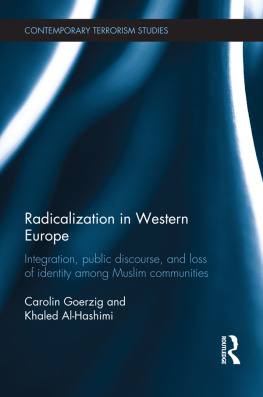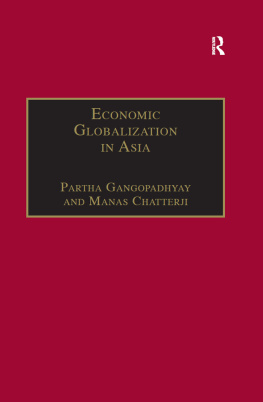GLOBALIZATION AND TERRORISM
Globalization and Terrorism
Death of a Way of Life
Lionel F. Stapley , PhD
First published 2006 by
Karnac Books Ltd.
Published 2018 by Routledge
2 Park Square, Milton Park, Abingdon, Oxon OX14 4RN
711 Third Avenue, New York, NY 10017, USA
Routledge is an imprint of the Taylor & Francis Group, an informa business
Copyright 2006 by Lionel Stapley
The rights of Lionel Stapley to be identified as the author of this work have been asserted in accordance with 77 and 78 of the Copyright Design and Patents Act 1988.
All rights reserved. No part of this book may be reprinted or reproduced or utilised in any form or by any electronic, mechanical, or other means, now known or hereafter invented, including photocopying and recording, or in any information storage or retrieval system, without permission in writing from the publishers.
Notice:
Product or corporate names may be trademarks or registered trademarks, and are used only for identification and explanation without intent to infringe.
British Library Cataloguing in Publication Data
A C.I.P. for this book is available from the British Library
ISBN13: 9781855754812 (pbk)
Typeset by RefineCatch Limited, Bungay, Suffolk
Contents
- CHAPTER ONE
The field of study: societal cultures - CHAPTER TWO
The parallel worlds of Globalization and global Muslim terrorism - CHAPTER THREE
The Industrial Revolution: the first Globalization - CHAPTER FOUR
Globalization - CHAPTER FIVE
The effect of Globalization on Western societies - CHAPTER SIX
An analysis of the effects of Globalization on non-Western societies - CHAPTER SEVEN
Exploring the effects of Globalization on inter-cultural relationships and relatedness
- CHAPTER ONE
The field of study: societal cultures - CHAPTER TWO
The parallel worlds of Globalization and global Muslim terrorism - CHAPTER THREE
The Industrial Revolution: the first Globalization - CHAPTER FOUR
Globalization - CHAPTER FIVE
The effect of Globalization on Western societies - CHAPTER SIX
An analysis of the effects of Globalization on non-Western societies - CHAPTER SEVEN
Exploring the effects of Globalization on inter-cultural relationships and relatedness
Guide
Members of societies throughout the world are currently experiencing massive, unprecedented, changes in their way of life. Changes that are lacking in focus, which are on a grand scale, and are of such a nature as to be affecting most aspects of life. Some of the identifiable changes include: societies turning away from paternalistic to maternalistic leadership; countries divided by political allegiance; young people demonstrating; immigration on a global scale; and loss of confidence in political and social institutions and leaders. But precisely what is happening and why are difficult questions for all of us who are involved in this process to answer. This book seeks to show that, these sometimes-violent disturbances to peoples way of life are a consequence of Globalization. The aim of the book is to provide explanations as to why Globalization is affecting the world in this way; and to contribute to an understanding of the seemingly irrational dynamics that are currently affecting societies throughout the world. Not least, those dynamics that result in global terrorism by Muslims.
This will involve showing the way that one society or culture, that of the West ( us ), responded to a period of economic failure by seeking to utilize global resourceshuman and physicalto create wealth and to provide cheap goods which would ensure the continuance of our standard of living. At least, that was the openly stated theory of Globalization at the outset. But as we shall see, it was and is, much more than just an economic model. It is a process that has no less a purpose than an attempt to change the world. It is regarded as a process in which technology, economics, business, communication and even politics will dissolve the barriers of time and space that once separated a peopleand that the process of Globalization will ultimately lead to the closer integration of the world.
As an economic model Globalization has, by various measures and according to various commentators, been regarded as a success. Among other successes attributed to Globalization is the claim of a rise in living standards that has occurred as barriers between nations have fallen. However, it is also accepted that despite a resulting escape from poverty by millions of people in those places that have joined the world economy, it is still hard to convince publics and politicians of the merits of Globalization. As with many large-scale change processes at both a national or international level, what seems not to have been considered is the effect that these changes would have, and continue to have, on the various societal cultures throughout the world. It would appear that in developing and implementing Globalization the West has not considered the political and social consequences both in Western and in non-Western societies. Or if they have been considered, and there is some evidence for this view, they were totally misguided and developed solely from a monocular perspective; the singular view of the West. As we shall see there have been many effects of Globalization: the most dramatic and representative of all being that of global Muslim terrorism.
The effects of terrorism are, by their very nature, intended to be sensational. And such is the nature of terrorist activities carried out in recent years that members of societies throughout the world will be well aware of these events and their consequences. The resultant deaths and the physical and psychological maiming of those who have survived are plain for all to see. And, being in the eye of the visual news media the images are there to be seen unedited, with a shocking immediacy, and numbing reality by millions across the world. These atrocities are all reported in both the tabloids and the quality news media with headlines that match the shocking nature of the crimes. And the tabloids in particular will frequently respond by tapping into the emotions of the public by expressing hatred for the perpetrators who are identified as barbarians.
The resulting loss of human lives and appalling injuries suffered by the victims of terrorist acts provides a continuing drama as the families and close friends of the victims try to come to terms with the sudden and violent intrusions into their lives. This, in turn, provides continuing material for the news media, as does information about the search for those responsible for such heinous crimes. With each step of the process of grieving and mourning the vivid images are repeated on television and in the other news media. Taken together, they all contribute to a general sense of fear and anxiety by members of society. Put briefly, the effects of terrorism are simply terrifying and unavoidable.
Unlike terrorism, the effects of Globalization may not be so obvious and so readily identifiable. Such is the nature of change resulting from Globalization that it is, in the main, imperceptible to most at this time. The effects of Globalization have nothing of the immediacy and sensationalism that results in terror being so frequently featured in the visual and written media. On the contrary, reporting of items about Globalization is generally confined to the Business Sections of the quality newspapers. Seldom, if ever, does Globalization feature on the visual media and it is even less likely to be referred to in the tabloid press. I would suggest that if members of Western societies were asked about their views on Globalization most would probably be neutralexpressing neither good nor bad views. Some liberal minded members of societies might take a political view that was against the notion of big business and conglomerates because they perceived them to unfairly disadvantage the worlds poorer nations. But I would be very surprised if anyone were to offer the view that Globalization could be causing a degree of anxiety and suffering, in both Western and non-Western societies throughout the world, that was experienced as worse than the effects of acts of terrorism. Yet, this view which may be regarded by many as astonishing is that which is put forward in this book.

